This story appears in WSLAM 3. Shop now.
Three years ago, the WNBA faced criticism over its hiring practices due to the lack of women in leadership roles, particularly in head coaching positions. Now, in its 27th season, women make up 75 percent of the head coaches in the League, six of whom are former WNBA players.
Read on to learn why it’s so important to have players as coaches and all of the intangibles they bring to the position.
NANCY LIEBERMAN PAVES THE WAY
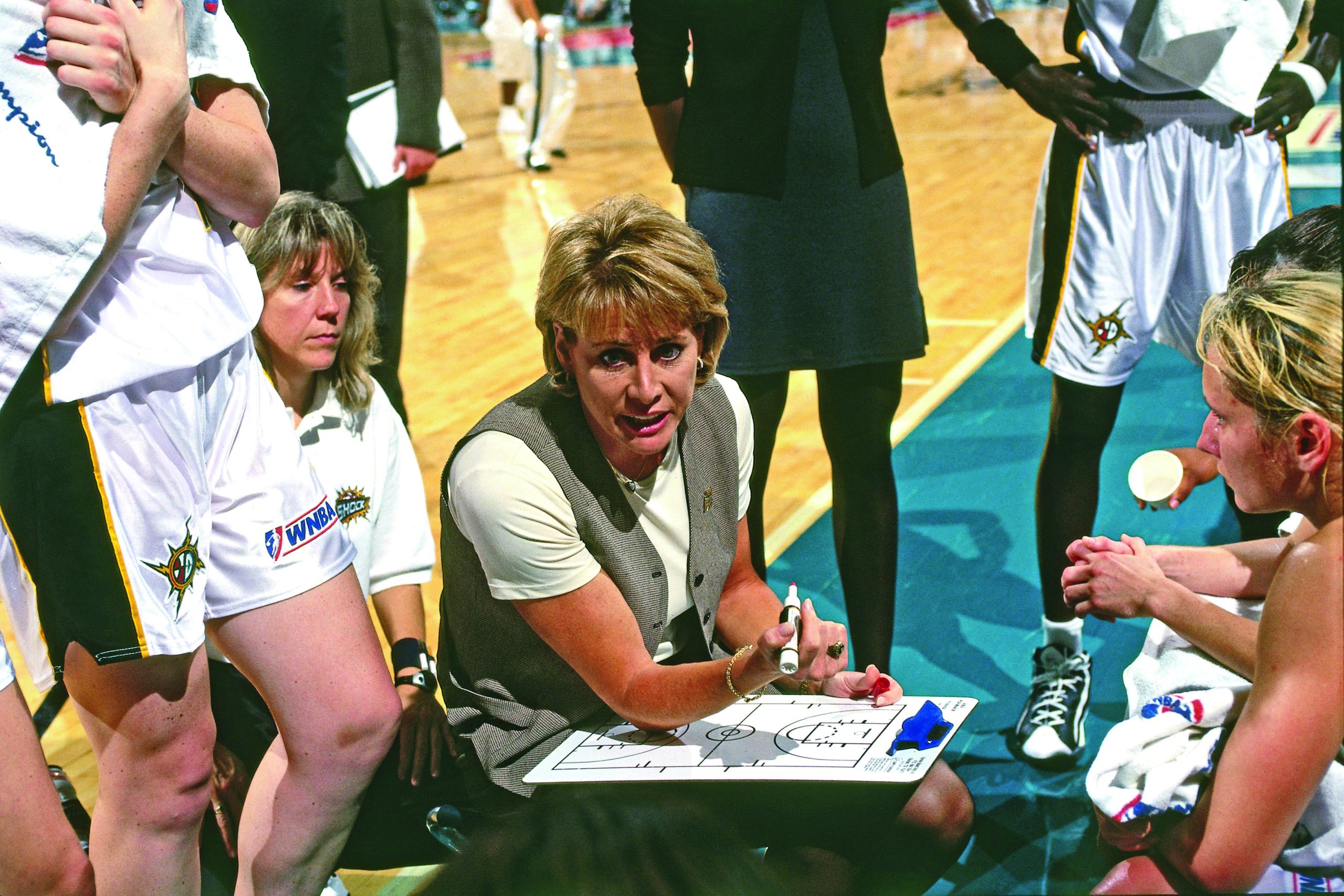
In 1998, Nancy Lieberman became the first player-turned-head coach in the W after assuming a dual role as general manager and head coach of the Detroit Shock. Lieberman, a New York City native, was drafted by the Phoenix Mercury in 1997 at 38 years old. She played one game for the Detroit Shock in 2008 at the age of 50. The Hall of Famer is considered a trailblazer for her advocacy work related to gender equality in sports and for paving a new path for female coaches across both men’s and women’s sports.
SANDY BRONDELLO: FIRST FORMER PLAYER TO WIN A TITLE AS HEAD COACH
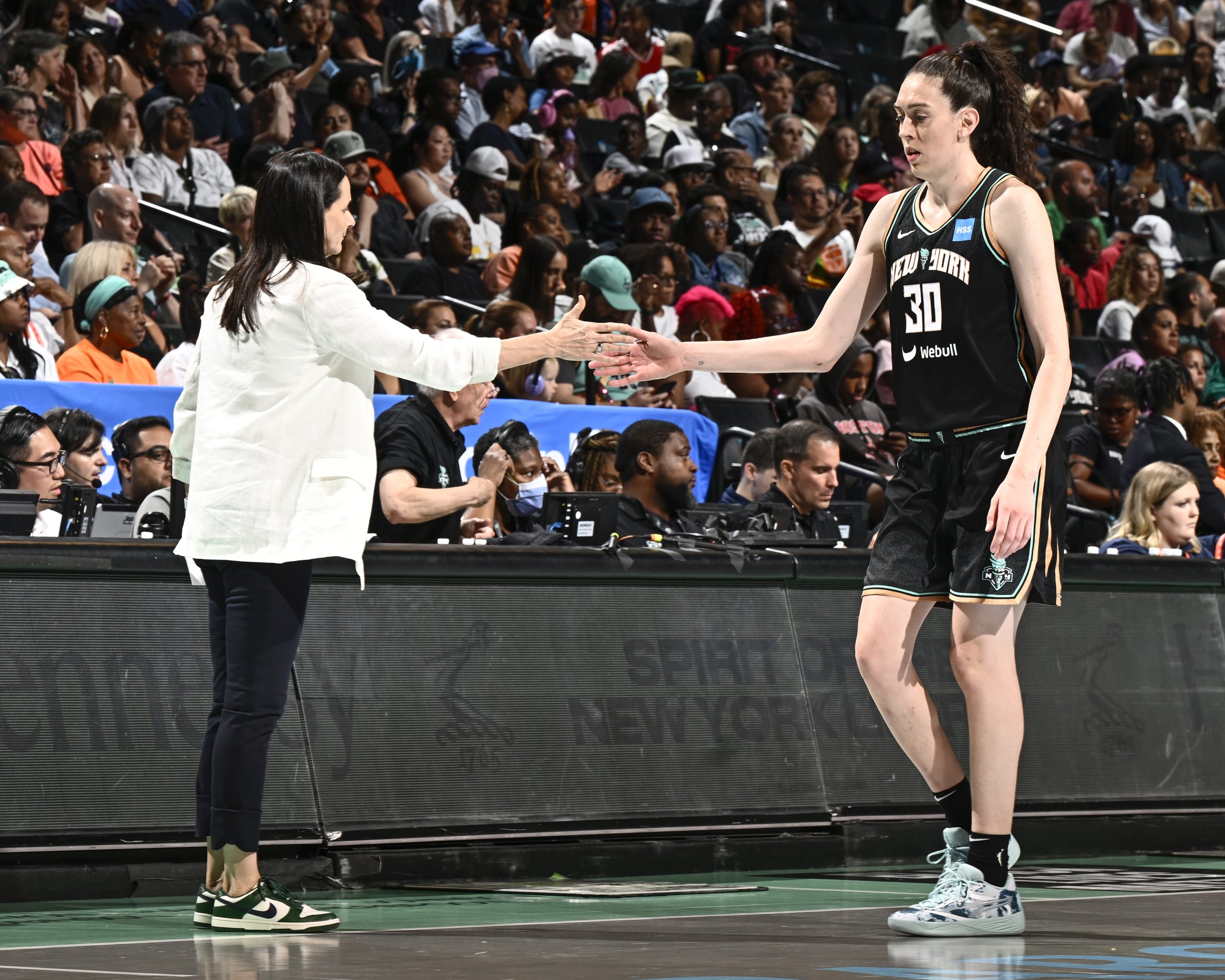
After she was drafted with the 34th overall pick by the Detroit Shock in 1998, the first WNBA coach Sandy Brondello played for was Nancy Lieberman. The two had actually crossed paths a year prior in Phoenix.
“I visited Phoenix to spend some time with Michele Timms, who I was quite close to, and I remember shooting around a little bit, and later I heard that Nancy was scared that I was going to take her spot,” Brondello jokes. “But I was injured, so I wasn’t taking anyone’s spot.”
As a player, the Australian native’s WNBA career would last five seasons, with stops in Detroit, Miami and Seattle. Figuring out what comes next once the ball stops bouncing is a harsh reality that every athlete must face at some point. After 17 years as a professional basketball player, Brondello, then 36, had to confront the big question: What now?
The answer came to her after the 2004 Olympics, when it became harder for her to recover from the multiple injuries she had sustained over the course of her career.
“It was my choice to retire. I wasn’t forced out,” says Brondello. “I got to a stage where I played so much basketball and achieved all of the goals I set out for myself. It was all about what’s next. I knew I wanted to coach.”
Brondello’s desire to coach in the WNBA became a reality when she was offered her first assistant coaching job for the San Antonio Silver Stars (now the Las Vegas Aces) by then-head coach Dan Hughes in 2005. “That opportunity paved the way for where I am today,” she says.
Using her experience as a former player to her advantage, Brondello was able to bridge the gap between the players and the coaching staff. In 2010, she was promoted to head coach of the Silver Stars, a decision she views, in hindsight, as a mistake.
“Why I wanted to be a head coach and why I shouldn’t have [been] is because I was pregnant and had a baby during the season,” explains Brondello. “Trying to be a mom of two and being
a coach in my first head coaching job—it was tough. I should’ve prioritized being a mom right there because I didn’t have enough support, to be quite honest, to do my job at the highest level with one assistant.”
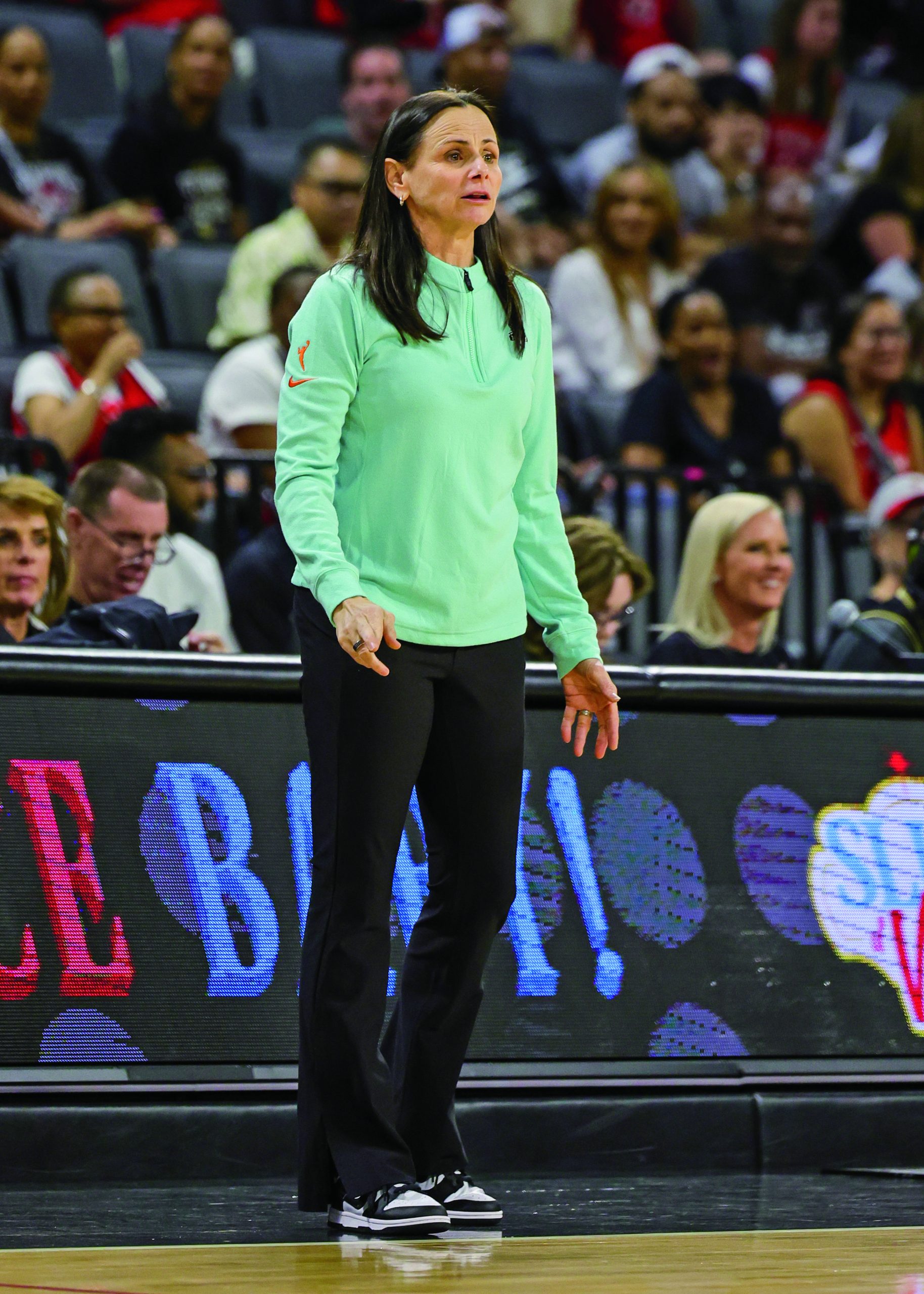
During that time, the WNBA only allowed one assistant coach per team, a role Brondello had filled with her husband, Olaf Lange. Together, they had to navigate both coaching and parenthood as a team of two.
The Silver Stars finished the 2010 season third in the West with a 14-20 record and eventually lost to the Phoenix Mercury in the conference semifinals.
At the conclusion of the season, Brondello’s and Lange’s contracts were not picked up. Using her experience in San Antonio to learn and grow, Brondello prepared for her next opportunity.
Since 2005, she has served as either a WNBA head coach or assistant.
In 2014, Brondello made history as the head coach of the Phoenix Mercury, leading the team to a 29-5 record and a championship in her first season, while also winning the League’s Coach of the Year award.
Now serving as the head coach of the New York Liberty after eight years in Phoenix, Brondello is on a quest to make history again by bringing New York its first title in franchise history.
BECKY HAMMON: BREAKING BARRIERS
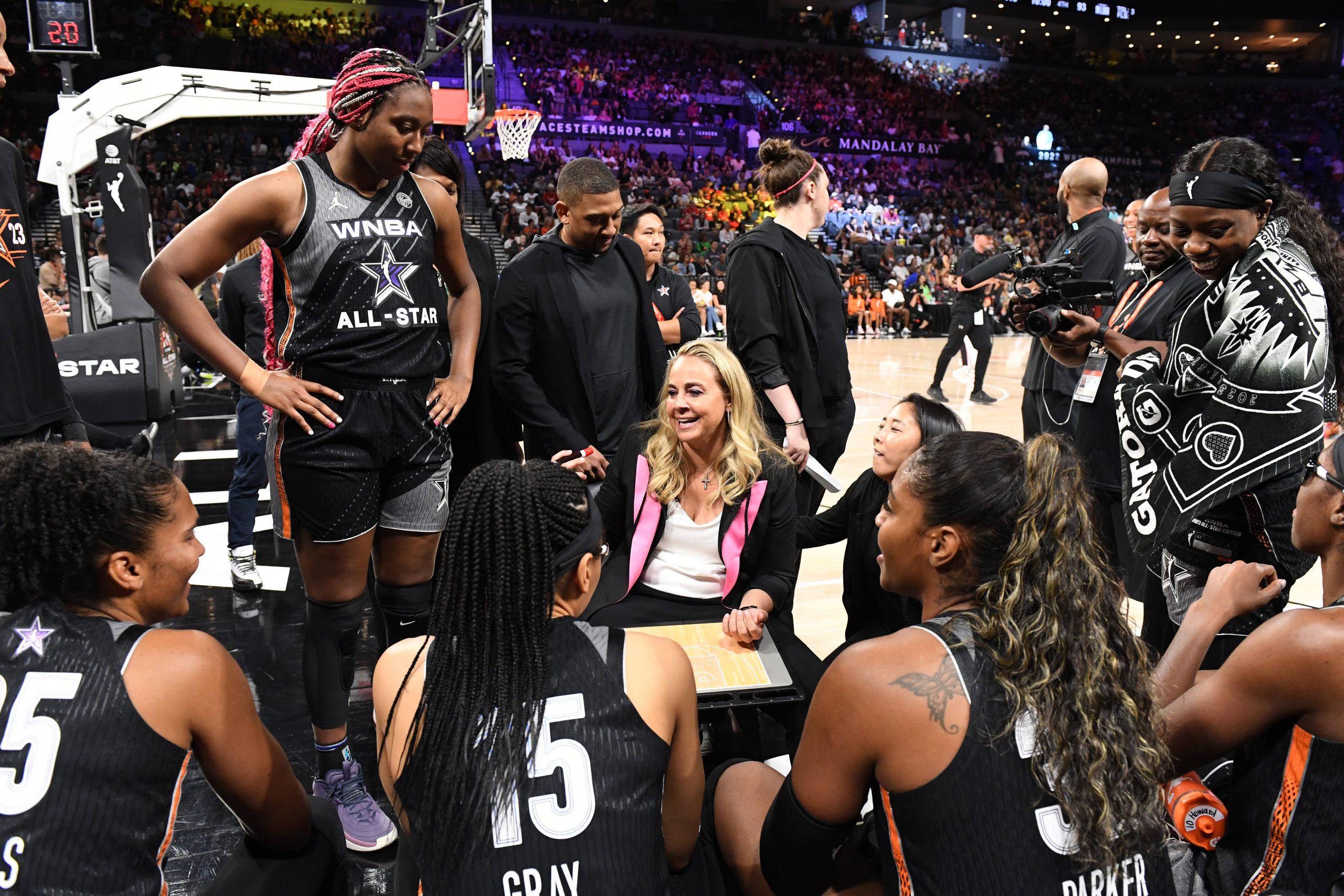
Last year, Becky Hammon joined Sandy Brondello as the only former WNBA players to win titles as head coaches when she led the Las Vegas Aces to its first championship in franchise history.
“I played against Sandy, and then she coached me [in San Antonio], and now we coach against each other,” says Hammon.
This season, the Aces and Liberty have been dubbed “superteams” due to their free agency roster additions. The Aces, with Hammon at the helm, are looking to win back-to-back titles, something that hasn’t been done since the Los Angeles Sparks in 2002. Two-time WNBA champion Candace Parker is on the roster, which already includes two-time MVP A’ja Wilson, veteran guard Chelsea Gray and former No. 1 overall picks Kelsey Plum and Jackie Young. And the Brondello-led Liberty added Breanna Stewart, Jonquel Jones and Courtney Vandersloot.
“When she signed Stewie and that news broke, it must’ve been a couple of days later when I said, Oh, this is about to be fun, because you want to play against the best,” Hammon says.
A student of the game, Hammon says she learned a lot from Brondello during her days playing in San Antonio, a true testament to the positive impact of having former WNBA players in head coaching positions.
“Obviously, it’s not a prerequisite to be a great coach, to have to be a former player, but I think that there are so many great minds in the women’s game [that] just want to give back to the game that has given us so much. I respect that,” she says. “There are so many of us now that it actually speaks to the longevity of the League, now that we’re getting to cycle through having all of these players be head coaches. It’s a cool thing we got going on, [I] definitely want to keep it open and leave something for the next person coming in, opportunity wise.”
Hammon admits that she never really thought about what she wanted to do after her playing days were done. “Back then, I was more worried about keeping my job and trying to get better every year,” she says.
In 2012, after seeing former player Stephanie White become a coach in Indiana, Hammon started weighing her post-retirement options. After sustaining a knee injury in 2013, she pivoted to broadcasting before officially retiring the following year.
“When I retired from the League, I went right into the NBA. I had, like, two days off, so there wasn’t a lot of down time. It was one right into the other,” Hammon recalls. “There’s a pipeline now. There wasn’t always that.”
Today, current and former players have more access to resources, like the NBA Coaching Development Program, that assist them with getting coaching opportunities. WNBA players like Candice Dupree and Kristi Toliver have benefitted from such programs.
A six-time WNBA All-Star, Hammon is also helping to set a new precedent of pay equity for coaches across the League. In 2022, the Aces signed Hammon to a $1 million annual contract, the largest in WNBA history.
“The rising tide lifts all the ships so that everybody moves up,” she says. “Investing into people is why I got into coaching, into leadership. It’s because I really feel like I’m mentoring the next generation of leaders with a really simple, straightforward message: Serve the people around you.”
TRENDING IN THE RIGHT DIRECTION
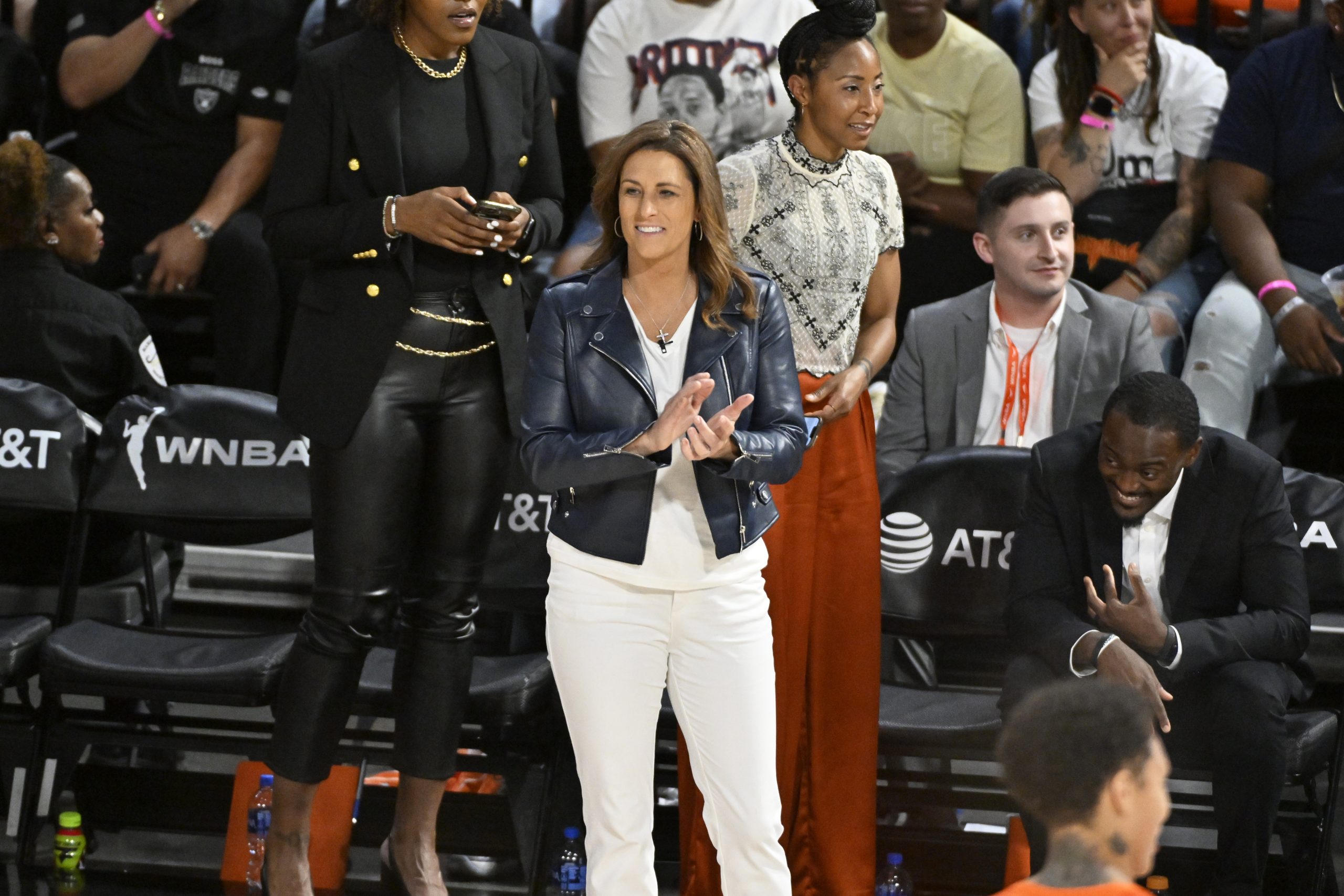
Each of the League’s dozen teams have taken advantage of hiring a former player to join their staff.
“It’s real intentional to re-engage former players. Not every former player wants to be a coach, but the ones who do, give [them] an opportunity,” says current Connecticut Sun head coach Stephanie White.
A few years ago, the WNBA implemented a new League policy, allowing teams to carry three assistants (rather than two) on the condition that one is a former player (with at least a year of experience).
In a League composed of over 70 percent Black athletes, this policy has helped to improve representation and diversity efforts within the WNBA hiring cycle.
Atlanta Dream head coach Tanisha Wright is a by-product of former Aces head coach Bill Laimbeer’s coaching tree. Wright joined the Aces staff in 2020 and was hired by the Dream one year later.
“Bill absolutely championed women and gave women opportunities to coach in the W,” says Wright. “He’s just somebody who saw the importance of having former players and giving women opportunities to impact this League in a special way.”
Wright prides herself on helping to create opportunities for others, especially those who are often overlooked when it comes to second chances. This season, she added former Wings head coach Vickie Johnson to her staff after Johnson’s contract wasn’t renewed by Dallas.
“It’s important for us to create opportunities for ourselves because we [Black women] often don’t get second chances,” says Coach Wright. “So if we have the opportunity to open the door for one another, then we need to do that. We need to leave the door open for the next generation coming.”
Currently, one fourth of the League’s head coaches are Black. Seattle Storm head coach Noelle Quinn shared similar sentiments when she reached out to Pokey Chatman to join her staff in 2021.
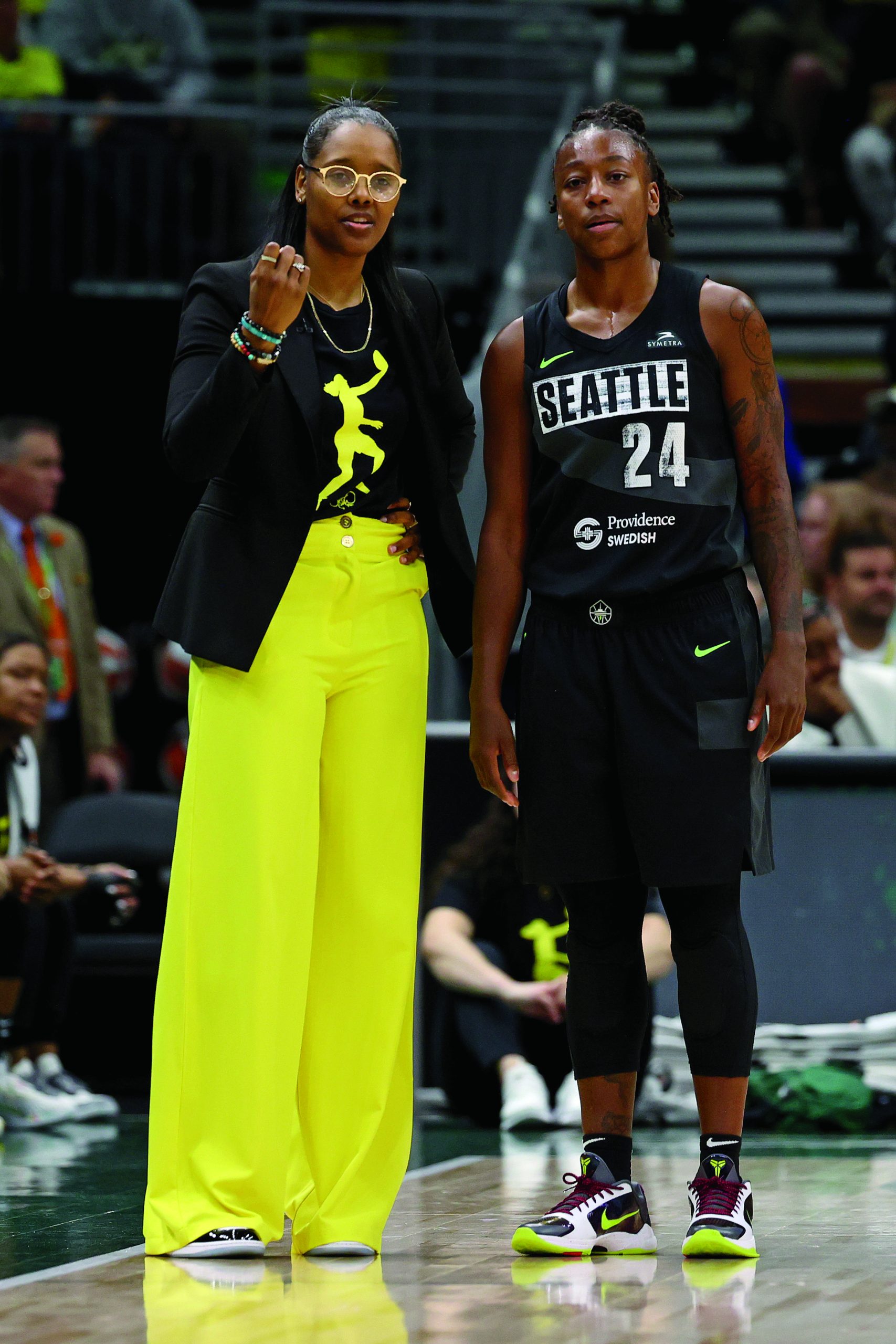
“Before I put Pokey on my staff, people weren’t checking for her anymore. I think that she is one of the best to have done it and continues to do it,” says Quinn. “If I have the opportunity to put somebody else on, then I’m going to do that. But not because they’re a woman or because they’re Black, but because they’re deserving…Representation matters and it’s not only important to have that on a coaching staff but [in] front office positions, too.”
With the WNBA in its 27th season, it’s important to recognize those who have paved the way, while still acknowledging that there is still progress to come.
“It’s really important for our League to continue to find ways to embrace and bring back former players,” says White. “Whether that’s on the coaching side, the business side, general managers, ownership. I hope one day our League has a commissioner that’s a former player.”
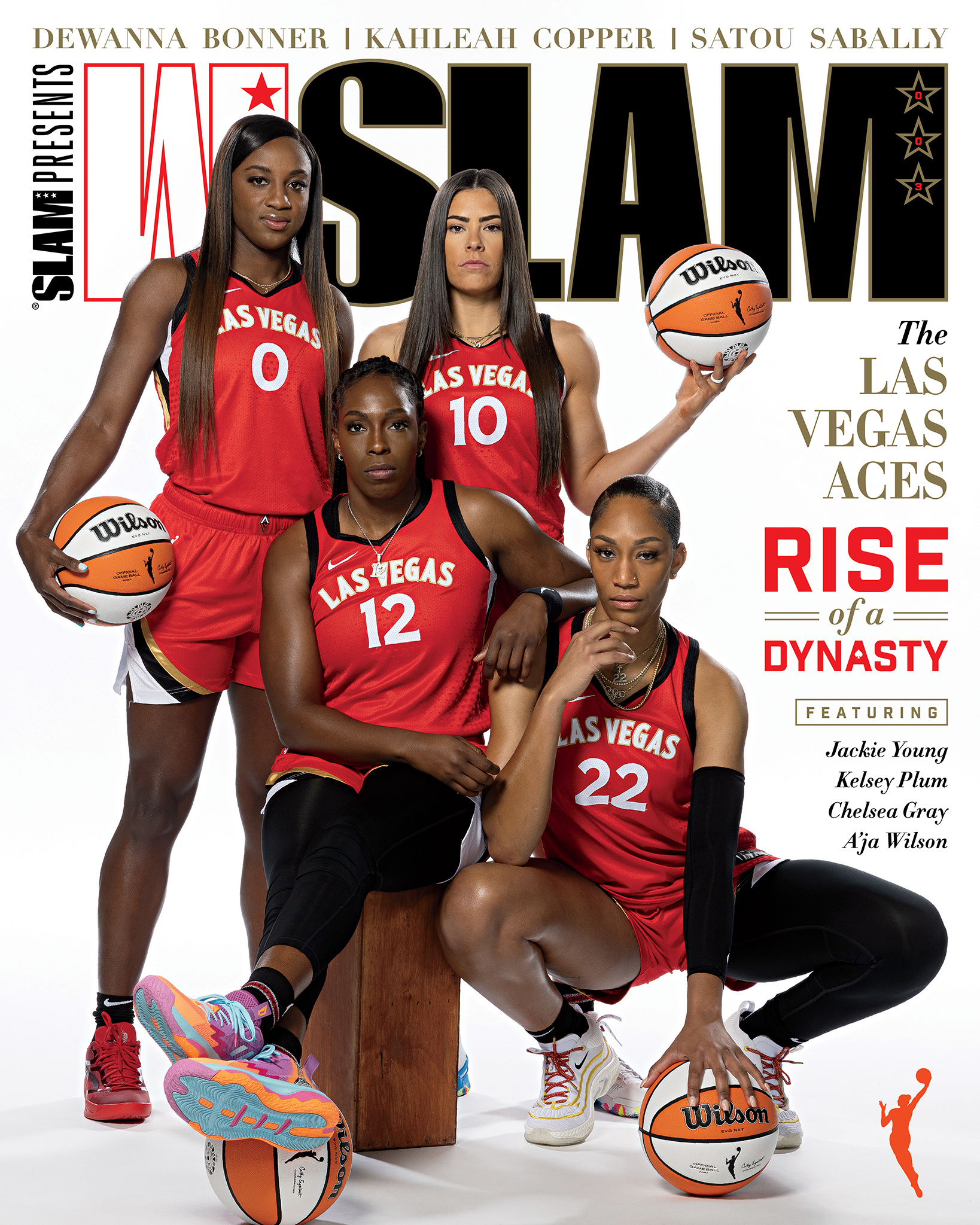
WSLAM 3 featuring A’ja Wilson, Kelsey Plum, Chelsea Gray and Jackie Young is available now.